In this myTake, I consider overeating as eating until you are too full and eating more than you need. Here are my tips for you.
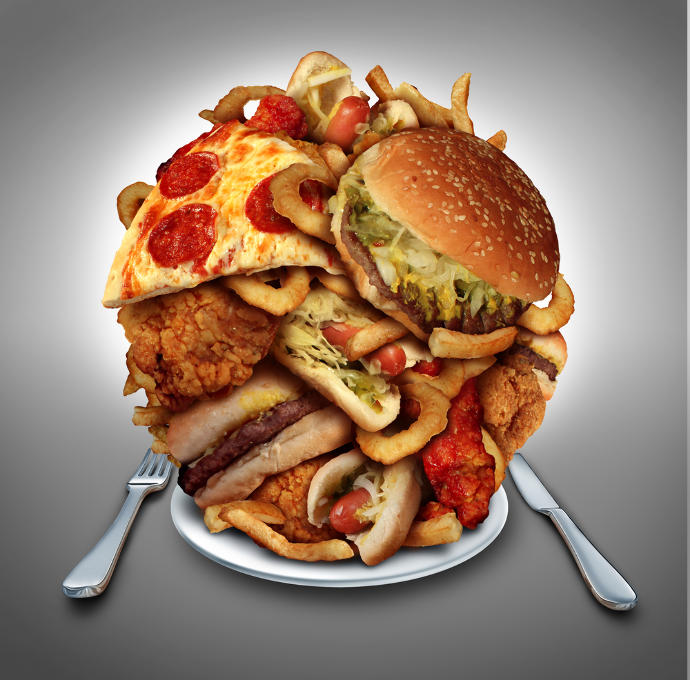
1. Know a rough guideline of how many food calories you need
For me, I need somewhere more than 2,000 calories per day. That's a ballpark estimate. That means one meal should contain about 700-800 calories.
That's a lot of calories. The easiest way for me to obtain calories in a healthy manner is to eat rice every day at every meal. One cup of cooked rice is about 200 calories. White rice has a longer shelf life than brown rice and is more absorbable than brown rice, so eating white rice means that there will be more calories absorbed. However, white rice tastes bland, so a helping of vegetables makes the food more savory and flavorful, even though the vegetables do moderate the absorption due to the indigestible fiber. Now, if I eat nothing but vegetables to go with the rice, then I can easily undereat. So, to make sure I get enough calories, a helping of meat would be added. If I eat a large chicken drumstick with bone marrow and skin and sinews, then I may consume somewhere between 200-250 calories. Next, I may add a high-calorie fruit as a snack, a medium-size banana. That should put me in the 700-800 ballpark.
Obviously, if I eat less calories, then I would lose weight. If I eat more calories, then I would gain weight. Whether that weight is fat or muscle depends on how my body chooses to utilize the excessive incoming fuel. Crappy food products, like the following video demonstrates, will create a massive fluctuation in blood sugar levels. When the blood sugar level is low, the person will feel lethargic and will sleep. Sleeping uses less calories than physical activity, so the excessive fuel will be stored as fat. Instead of eating crappy food products, one should eat healthy food products that do not create such big blood glucose level fluctuations. This will give the person more energy longer to do some kind of physical activity, and if the physical activity builds muscle, then the person will have stronger muscles in the future.
2. Prepare your own meals as much as possible
If you prepare your own meals, then you control the ingredients. You control how much of each ingredient you use and the type of ingredient used. You can make food according to your preferences and make food using cheap, local ingredients. Don't like ginger? Try basil. Don't have a sweet tooth? Try something savory or spicy.
Preparing meals does take some time, so it's better to make more than you need so that you will have leftovers for later. In the future, you can just reheat the food in the microwave.
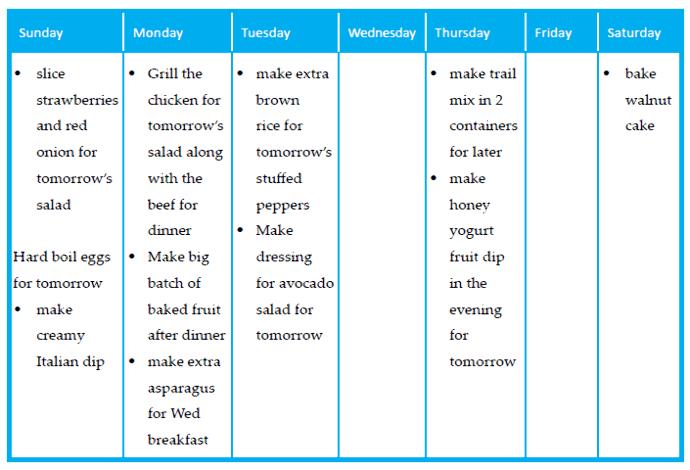
3. Use a Food Scale
A food scale is only useful, if you want to make small pieces of food in uniform size and weight.
Suppose you are making hamburger patties. You want to make sure that each hamburger patty is exactly 100 grams. So, you take some lean ground beef from the package, weigh the amount on the scale, and adjust by adding or subtracting beef from the amount. Then, with 100 grams of ground beef, you roll the beef portions into balls and place them on a plate. Then, you squish the hamburger patties and cook them on the skillet. The thinner the patty, the more quickly it will be thoroughly done, the shorter your cooking time.
A broiled hamburger patty of 100 grams will deliver 171-273 calories, from 95% lean ground beef to 70% lean ground beef.

4. Buy food with ingredients that you know
If you are not an organic chemist or food scientist, then you probably can't read the long list of ingredients on the label in prepared foods, such as bread, cheese, crackers, yogurt, or TV dinners.
If you don't know, then that just means you should avoid buying the product. Practically, this greatly limits the kind of food products you can buy. So, you may want to educate yourself on these ingredients and research them, where they come from, and whether there are any health risks (food allergies, sensitivities, intolerances) or environmental risks (i.e. deforestation of trees for planting and harvesting palm oil) from consuming them in some way.
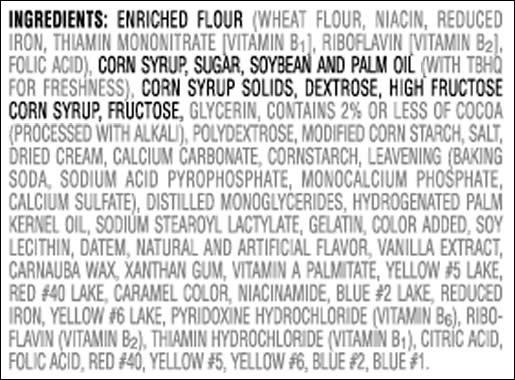
5. Buy cheap food products
I recently saw this MSN video. It is about the 5 grocery items that are nothing but a rip-off. Fortunately, the older I get, the more of a cheapskate I become. My cheapskate ways have prevented me from buying those food products. I think my cheapskate ways actually go far beyond most people, though.
Items include pre-cut/pre-washed salad mixes, deli foods, off-season produce, individualized snacks, and organic food products.
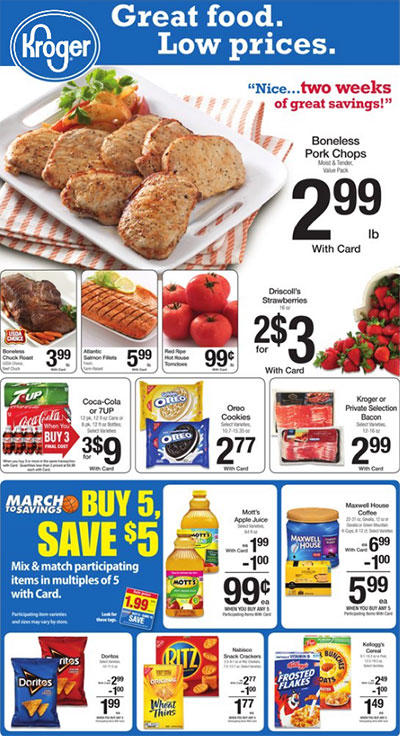
6. Do not consume from a large container
A large container is anything that holds more than one serving. Given that one-serving containers of snack food tend to be pricey, the prices should deter you from buying them regularly.
You wouldn't consume a whole bag of apples. So, why would you consume a whole half-gallon of almond milk or orange juice straight from the carton?
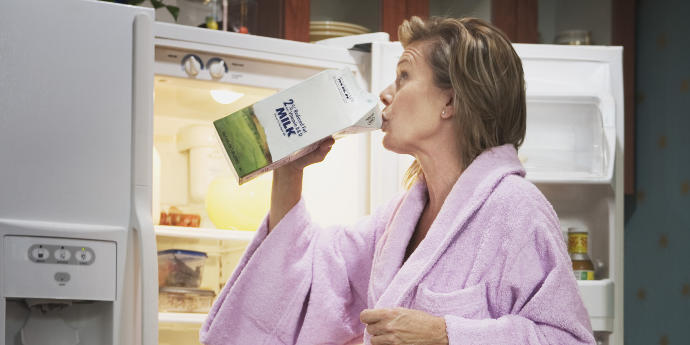
7. Bear in mind how many dishes you'll have to clean
More food means more cooking, which means more cleaning. If you bear in mind how much you have to clean, then you will cook the amount that you need. Sometimes, cooking more than you need is okay, if you want to have a lot of leftovers for subsequent days.
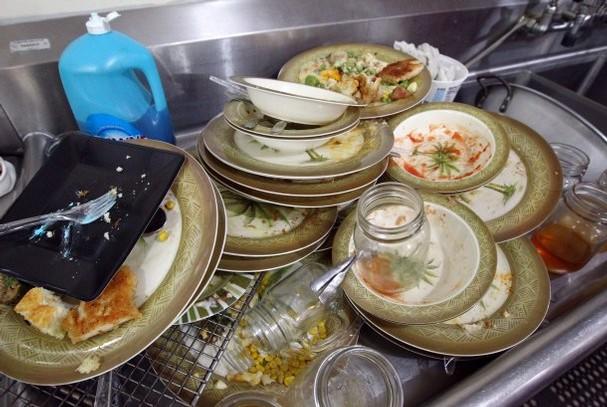
8. Eat at regular hours
I eat in the morning, at noon, and in the evening. I use those terms instead of breakfast, lunch, and dinner, because my morning/noon/evening meals tend to be somewhat spread out. I may eat oatmeal porridge first in the morning and then an hour later, I would eat a piece of fruit.

9. Be a cheapskate
I think the best way to limit how much you eat is to be a cheapskate. Certainly, if you buy more food, then you are buying more calories. If you pay attention to the prices, then you will quickly notice what items are currently being promoted at a reduced price at various stores, and among the items on sale, you only buy the items that you need to survive for a couple of days. Prepared foods typically do cost more than unprepared, raw ingredients, because someone has to put in the labor and time to make them.
They are also not the healthiest, because store-bought prepared foods may contain a long list of artificial ingredients. The benefit that you get from prepared foods is that they are very convenient. You can eat immediately or pop it in the microwave, and they taste great! (On the other hand, eating a washed, raw cucumber is just as easy and fast.) If you don't have any money to buy food, then you can always look inside garbage cans behind supermarkets for some edible loot.
Most Helpful Opinions